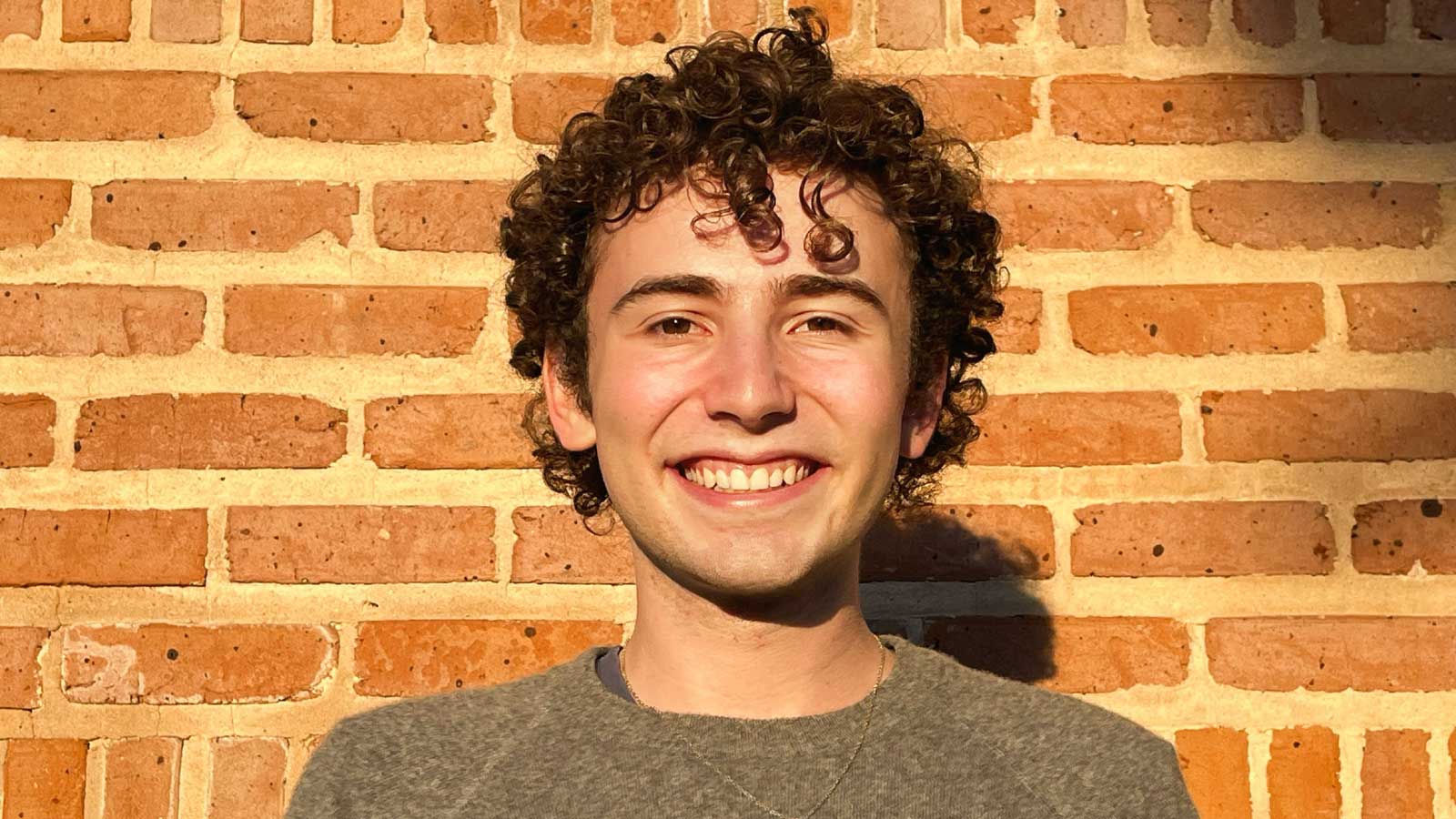Colter Decker arrived as a freshman at Rice in 2019, around the time Daniel Preston joined the faculty as an assistant professor of mechanical engineering (MECH).
“When he started working in my lab that fall, it often felt like we were both learning and growing together,” Preston said. “Now, in our third year working together, Colter’s role in our lab is comparable to that of a Ph.D. student.”
In the Preston Innovation Lab, Decker has worked in such traditional MECH disciplines as fluid mechanics and dynamic systems but also in the interdisciplinary fields of soft robotics and surface coatings.
“I’m currently working in a cool part of engineering known as fluidic digital logic,” said Decker, who expects to graduate in 2023 with a B.S. in MECH and a B.A. in mathematics. “We’ve designed arrays of compliant pathways for fluid flow which mimic digital logic devices, including logic gates and a ring oscillator.”
As a rising sophomore, Decker applied to the REU programs (Rice Research Experiences for Undergraduates) and was accepted into the highly competitive summer research program at Harvard University. There he worked on the development of smart soft robots in the lab of George M. Whitesides, in the department of chemistry and chemical biology.
“Since coming back to Rice,” the Portland, Ore., native said, “I’ve continued working on the project we started at Harvard. We’re creating new ways to precisely fabricate fluidic controllers for soft robots in less than five minutes.”
Decker has designed, built and programmed a wireless, four-output, pneumatic control system weighing less than 60 grams. He is also characterizing soft robots with a combination of finite element analysis, experimentation and analytical modeling.
“Colter has a good command of the motivation and the fundamentals of his work, and his research progress is among the best I have seen from an undergraduate,” Preston said.
Decker is also second author on a paper, “Effect of daily temperature fluctuations on virus lifetime,” recently published in the journal Science of the Total Environment.
“This project started when we asked ourselves, how does temperature affect viruses?” Preston said. “We began looking for insight into the effects of mean temperature and diurnal temperature range on virus lifetime, focusing specifically on SARS-CoV-2.”
In addition to his undergraduate research efforts, as a member of the Rice Eclipse Rocketry Club, Decker built a rocket that attained a 1,200-foot apogee. As part of the propulsion team, he helped machine a 12,000-lbf (pound force) thrust hybrid rocket engine.
“Rice has given me so many opportunities. I’m planning to go on to graduate school and will probably continue to conduct research in the field of soft robotics, which has applications in medicine and many other areas,” Decker said.
This profile is part of a series about undergraduate student research

